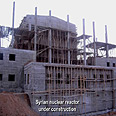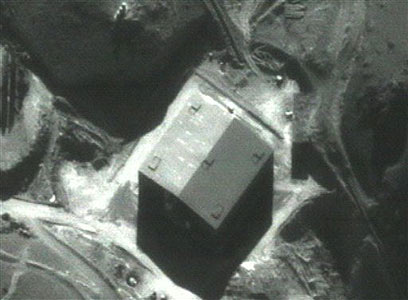
Syrian rebels say willing to work with IAEA
Free Syria Army says will allow UN's nuclear watchdog inspectors into seized Al-Kibar compound 'if our demands are met'
A spokesman for the Free Syria Army hinted Sunday that the rebels would be willing to allow International Atomic Energy Agency (IAEA) inspectors into the Al-Kibar nuclear facility, which they seized last week.
The Al-Kibar facility, according to foreign media reports, was nearly leveled by a 2007 air strike, presumably launched by Israel.
Related stories:
- Syrian rebels seize Al-Kibar nuclear facility Syria: Hezbollah sets up camps near WMD facilities IDF says calm on Syria border 'deceptive'
"We're willing to cooperate with the IAEA if our conditions are met," the FSA said in a statement.
The London-based Arab newspaper Al-Sharq Al-Awsat further quoted a commander of one of the rebel brigades as saying that the rebels would be willing to lend the IAEA their cooperation in investigating the site, "As long as the revolution is protected."
He added that the FSA has set up a special security parameter around Al-Kibar, to protect it.
The IAEA has never been allowed to visit the suspected nuclear site.

Al-Kibar (Archive)
The spokesman said that an FSA officer has been made the liaison to the UN agency and will present it with the rebels' demands, which he said were "Primarily political, technical and logistical, the kind that mean to serve the revolution's intelligence's needs."
He further confirmed earlier reports of the facility's takeover, saying that the rebels found it empty. He refused to tell the newspaper whether anything was found on the premises to suggest that the facility was used for nuclear work.
"Those details will be given only to the IAEA," he said.
Meanwhile, the British Telegraph reported Sunday that Washington and London have begun crafting plans to take over or destroy the Syrian President Bashar Assad's chemical weapons arsenals, in the event that the volatile situation in the war-torn country deteriorate further.
According to the report, officials in both armies have been holding talks on ways to prevent Syria's chemical and biological weapons from falling into the hands of terrorist groups, primarily Hezbollah.
Assad is believed to have to the largest nonconventional weapons stockpile in the world.
- Receive Ynetnews updates directly to your desktop










